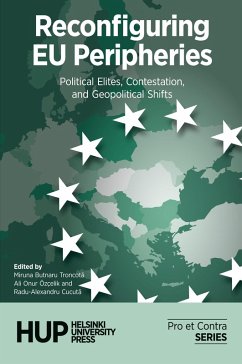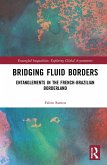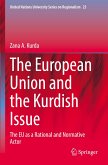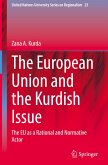Reconfiguring EU Peripheries explores the diverse nature of the European Union's interactions with its peripheries. Focusing on a period of rising regional tensions marked most recently by the war in Ukraine, the volume casts new empirical and conceptual light on the diverse motivations that underpin the political elites' attitudes towards the EU in Bosnia and Herzegovina, Georgia, Hungary, Kosovo, Moldova, Romania, Türkiye and Ukraine. The volume engages with various understandings of the EU's interactions with its different peripheries and shows how these dynamics are closely related to the self-perceived nature of the societies in question in relation to the EU. The impact of recent crises and conflicts underscore in some cases the need for strengthening solidarity and for 'more EU', whereas others highlight the doubts and disappointment over the challenges these societies have faced over recent years. The empirically rich case studies enable both interpretations of and debates on the EU integration processes. A comparative exploration of countries at different stages in the EU accession process and the various political elites' attitudes towards the EU outlines the essentially constructed nature of peripherality. By challenging the conventional understanding of contestation and peripherality, this volume is a worthwhile first step towards looking at the EU and the peripheries it creates from an alternative, and sometimes ignored, point of view. Miruna Butnaru Troncot¿ is an associate professor, a PhD advisor, and the director of the Centre of European Studies in the Department of International Relations and European Integration of the National University of Political Studies and Public Administration in Bucharest, Romania. Ali Onur Özçelik is an associate professor in the International Relations Department at Eski¿ehir Osmangazi University, Türkiye. Radu-Alexandru Cucut¿ is a lecturer with the Department of International Relations and European Integration of the National University of Political Studies and Public Administration in Bucharest, Romania.
Hinweis: Dieser Artikel kann nur an eine deutsche Lieferadresse ausgeliefert werden.
Hinweis: Dieser Artikel kann nur an eine deutsche Lieferadresse ausgeliefert werden.








